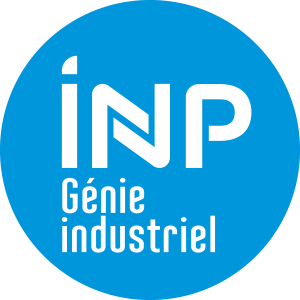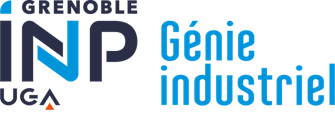Number of hours
- Lectures 4.5
- Projects -
- Tutorials 15.0
- Internship -
- Laboratory works 9.0
- Written tests 1.5
ECTS
ECTS 3.0
Goal(s)
At the end of this course, the students will be able to contribute to the implementation of an information system relevant to well-defined requirements. In particular, they will be able to:
- Define the functional requirements and interfaces of an information system using the UML framework
- Design system's components relevant to the functional requirements and interfaces using the UML framework
- Write complex queries in SQL language
- Develop and validate an information system with a DBMS
Content(s)
Lectures (4 x 1.5 h):
Challenges related to Information systems and databases - Database models and DBMS (1.5 h)
UML modeling: Use case, Classe, from UML class diagram to relational model (2 x 1.5 h)
Relational Algebra and SQL Language (1.5 h)
Tutorials (10 x 1.5 h):
UML modeling: Use case, Classe, from UML class diagram to relational model (3 x 1.5 h)
Relational Algebra and SQL Language (2 x 1.5 h)
Implementation of queries with a DBMS (2 x 1.5 h)
Structuring and importing data into a DBMS (1.5 h)
Creating user interfaces with a DBMS (2 x 1.5 h)
Project (3 x 3 h):
The goal of the project is to realize the entire process of an information system implementation through a case study inspired by a real industrial case. It is carried out in groups of two or three students. Four deliverables are expected: a project charter, UML diagrams presenting system specifications, a database and a collection of good practices. Each group can be asked to demonstrate the developed system.
Project management, General computer science course (Semesters 1 & 2) and a practice of microsoft office basic tools (Word, Excel, Powerpoint).
Three grades contribute to the final score (NF):
- Project score (NP) for 40%
- Intermediate work score (ND) for 20%
- Final exam score (NE1) for 40%
NF session1 = 0,4*NP + 0,2*ND + 0,4*NE1
To validate this course, each componant of the Note Finale (NF) must be strictly greater than 0
Session 2 : only one grade is considered
- A Final exam (NE2) (with the same modalities as the session 1's exam).
The participation of each student is taken into account in the evaluations.
The course exists in the following branches:
- Curriculum - Engineer student Master SCM - Semester 7
Course ID : 4GUL1301
Course language(s): 
You can find this course among all other courses.
"Systèmes d'information : structuration, modélisation et communication", Jean Claude COURBON, InterEditions, 1993
"Des Bases de données à l'Internet" P. Mathieu, 2000, Ed Vuibert
"UML en action par Pascal Roques, Franck Vallée ISBN 2-212-09127-3 Editions Eyrolles
"Bases de données - de la modélisation au SQL", Laurent Audibert, eds Ellipses 2009
"UML 2 - de l'apprentissage à la pratique", Laurent Audibert, eds Ellipses 2009
http://josdblog.blogspot.fr/2009/09/livre-base-de-donnees-de-la.html
"Management des systèmes d'information", Kenneth Laudon, Jane Laudon, Eric Fimbel, Serge Costa, 11eme edition, 2011, PEARSON
Supports de cours, vidéos et sites web disponibles sur chamilo.
French State controlled diploma conferring a Master's degree

Common Core presentation
Programme courses S5
Programme courses S6
Supply Chain Management
Programme presentation
Programme courses S7
Programme courses S8
Programme courses S9
Programme courses S10
Product Design
Programme presentation
Programme courses S7
Programme courses S8
Programme courses S9
Programme courses S10
Contacts
Academic staff
- Head of studies:
Pierre Lemaire - Head of 1st Year Program:
Abdourahim Sylla - Head of Supply Chain Management Program:
Irène Gannaz - Head of Product design Program:
Yann Ledoux
Registrar's office
- Head of Registrar's office:
genie-industriel.scolarite@grenoble-inp.fr - Secretary's office 1st Year:
Valérie Demicheli - Secretary's office 2nd Year:
Sylvie Malandrino - Secretary's office 3rd Year:
Vincente Odier - International relations department:
Nadia Dehemchi



